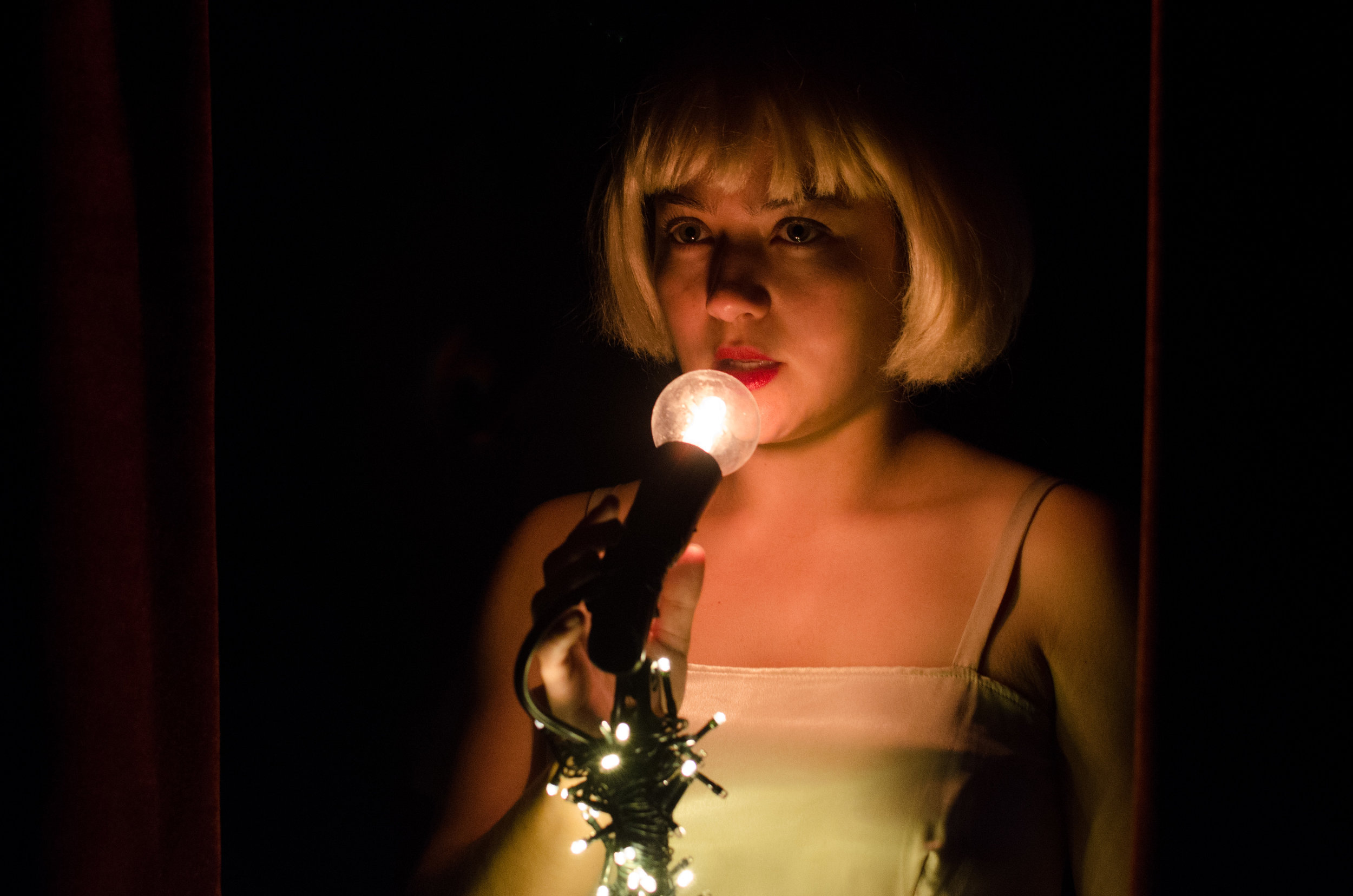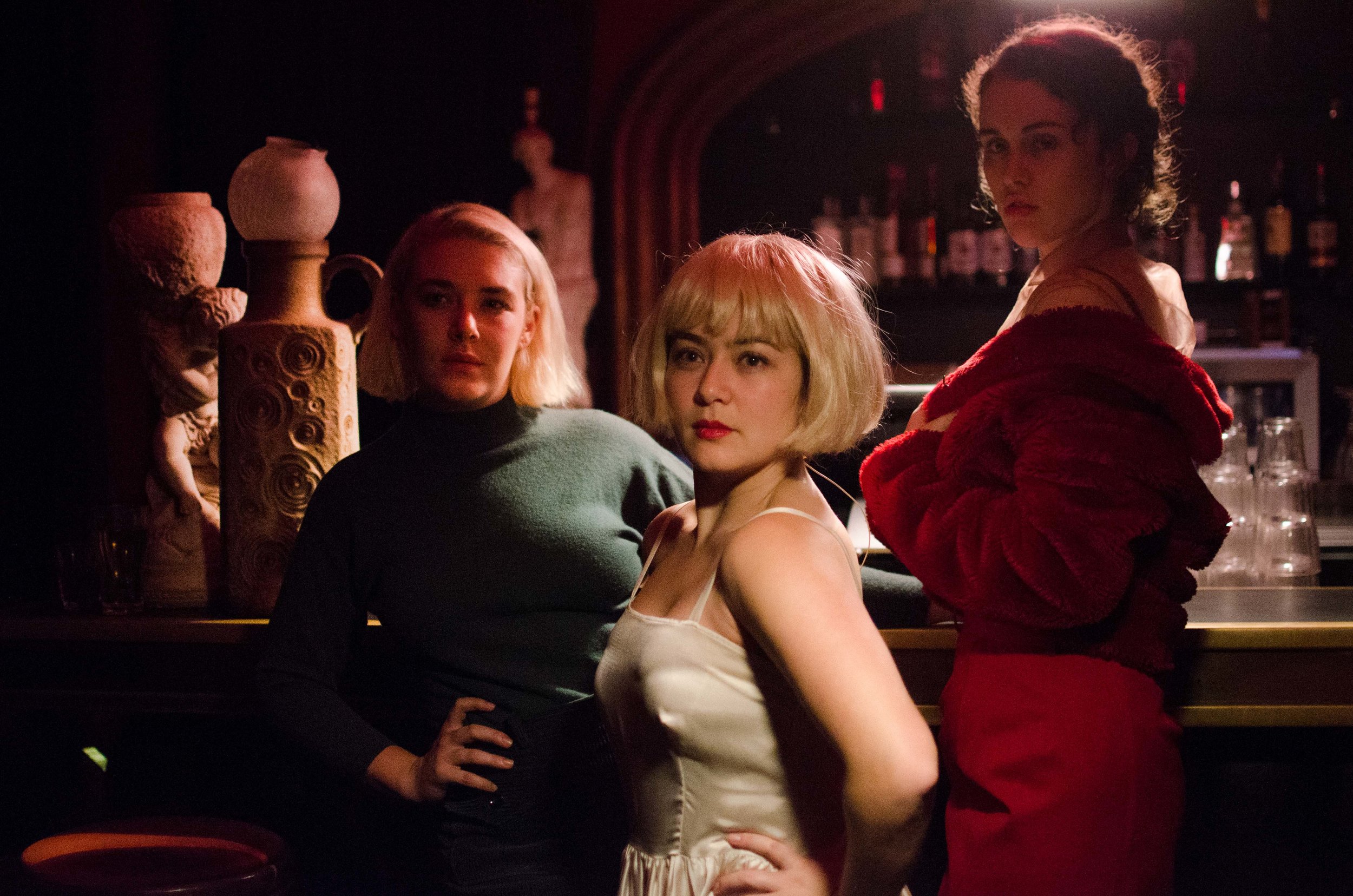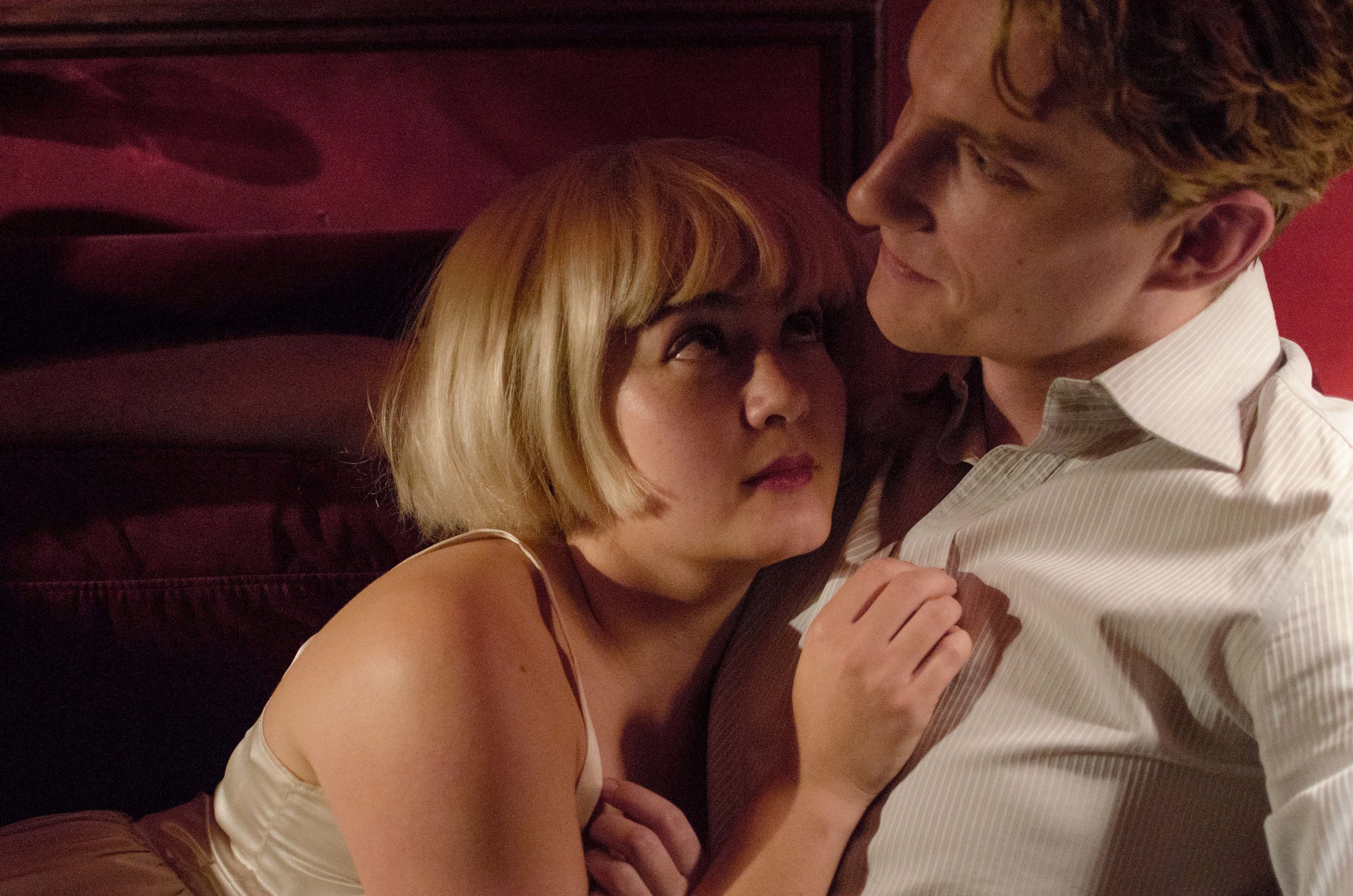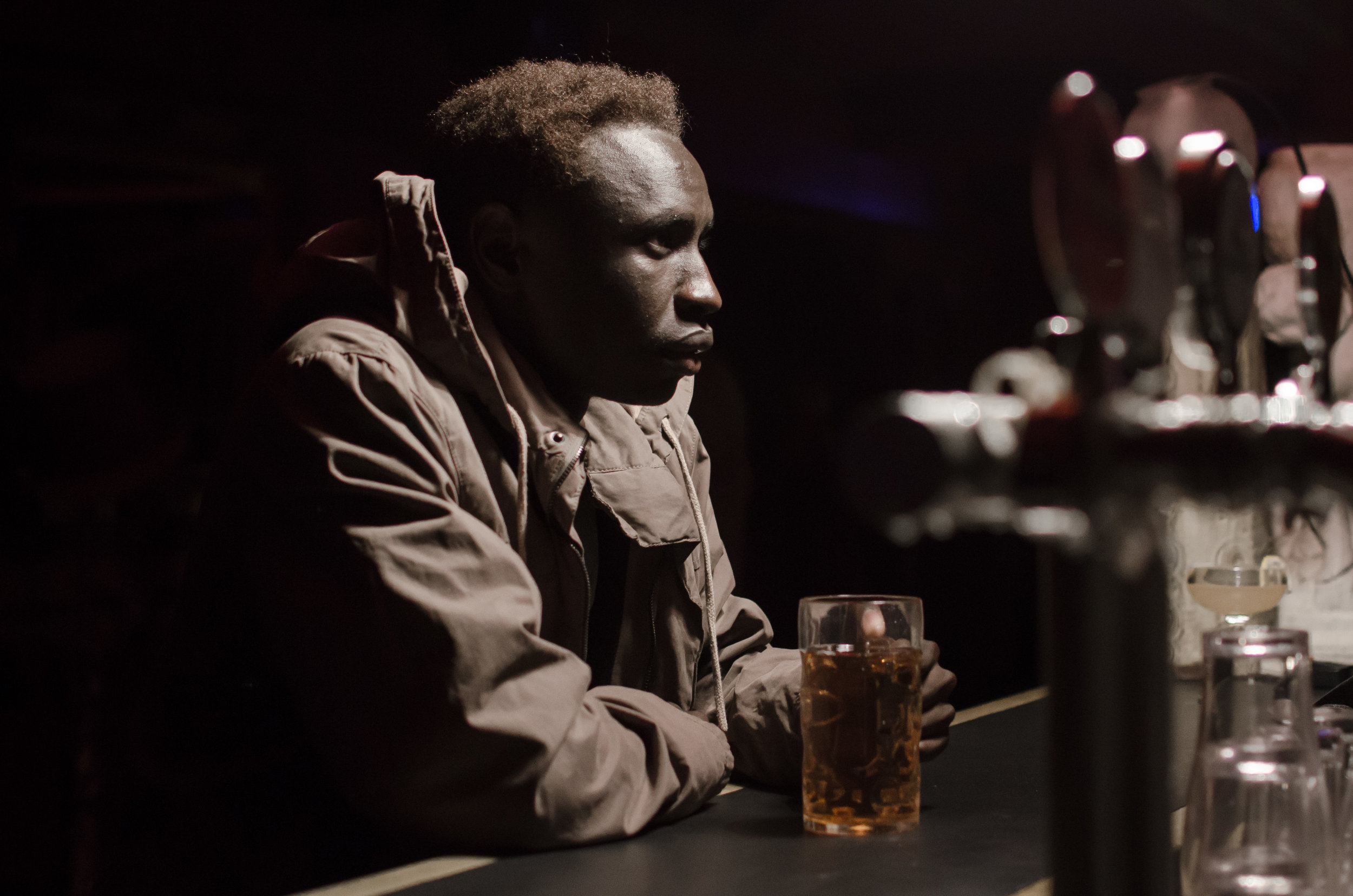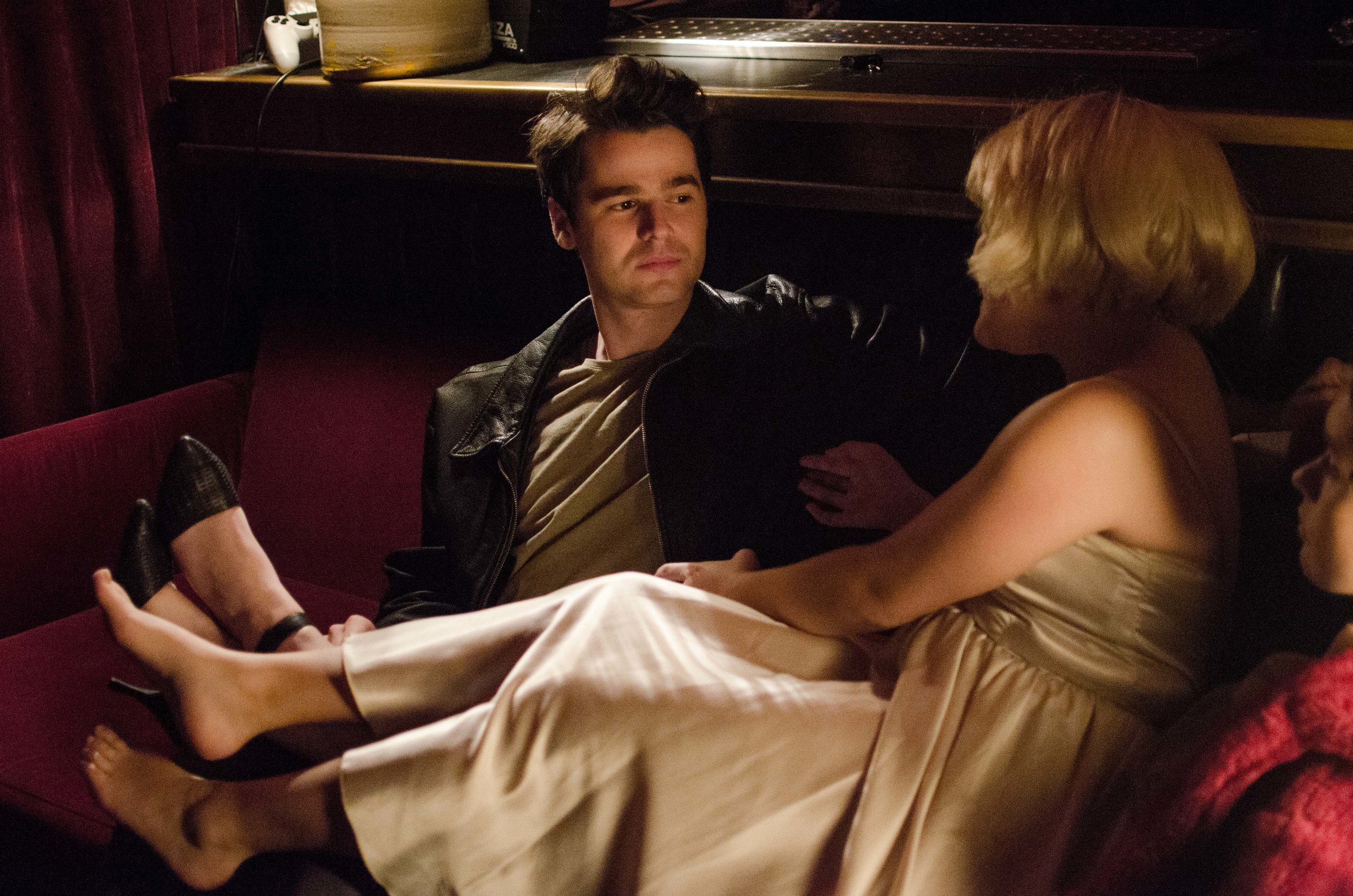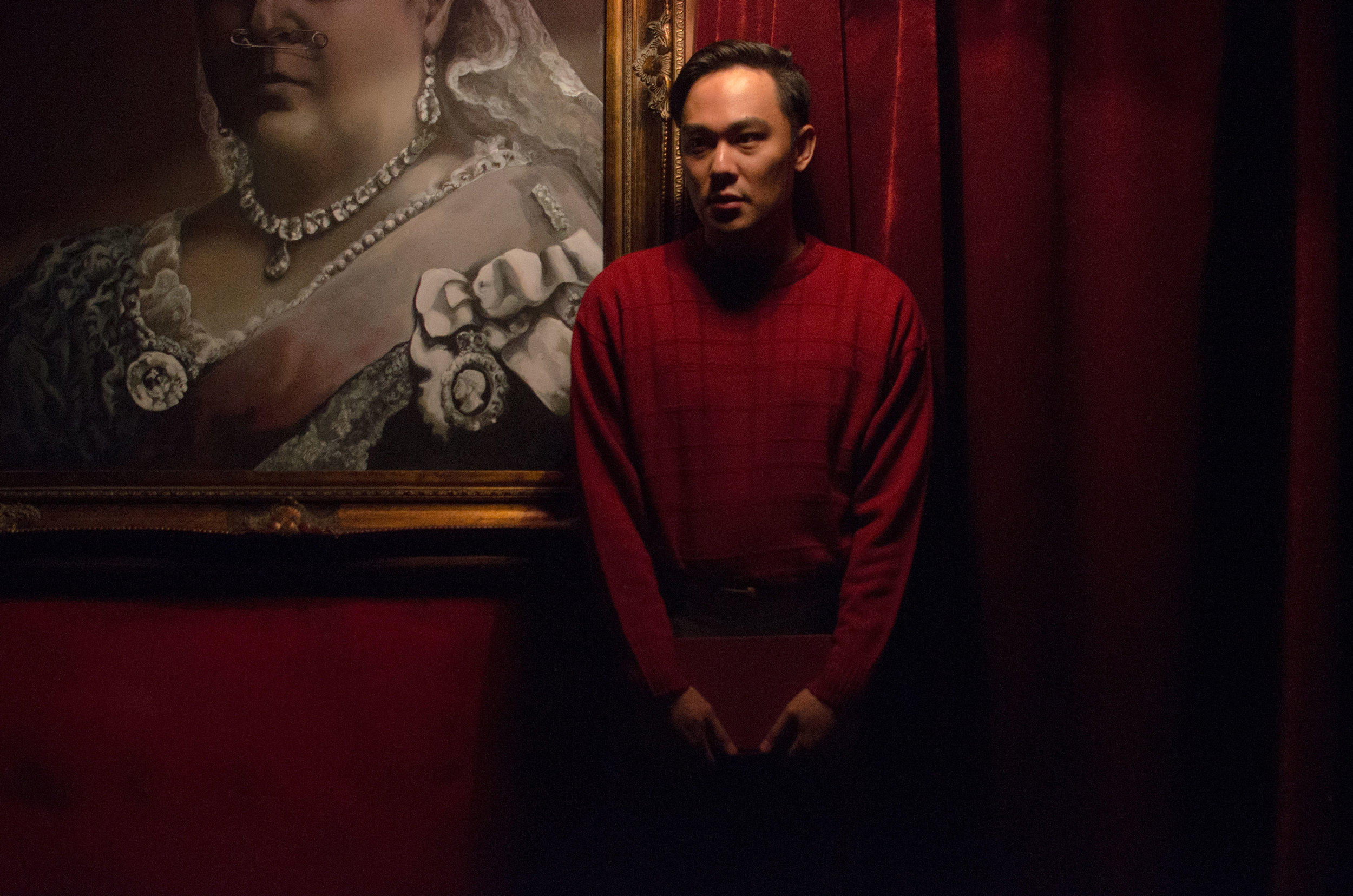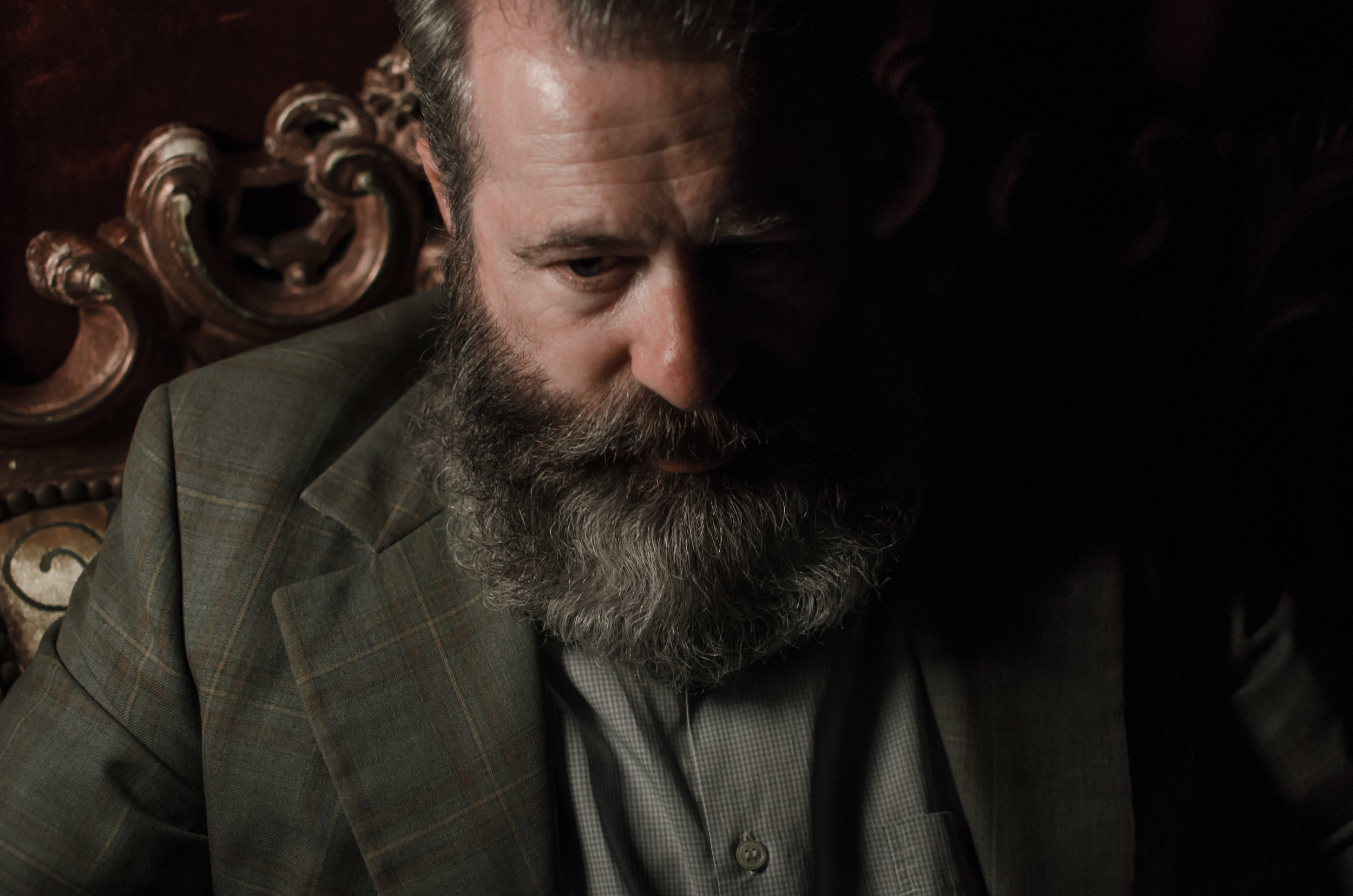22 MAY - 1 JUNE - THE BORDELLO, KXT
↓ ABOUT
Phoebe Zeitgeist has been sent to the earth from a distant star to write an eyewitness account of human democracy.
But Phoebe Zeitgeist has a difficulty: although she has learned the words, she doesn’t understand human language.
Seen through the eyes of the alien Phoebe Zeitgeist, Rainer Werner Fassbinder weaves a tapestry of petty nastiness, jealousy, insecurity, bullying and domination as an ever-shifting cast of characters move closer towards Phoebe’s orbit and their own bloody fate. Hilarious and horrifying, Blood On The Cat’s Neck is a vibrant reminder of why the German rebel remains one of the most unique and revolutionary voices in theatre history.
First performed in Germany in 1971, Montague Basement is proud to present the Australian premiere of this underperformed masterpiece. As the first performance as part of KXT's exciting new PopUpstairs program, Kings Cross Hotel's unique Bordello room will be transformed into an immersive theatrical experience that is sure to be an unforgettable night out.
↓ TEAM
by Rainer Werner Fassbinder
Translated by Denis Calandra
Directed by Saro Lusty-Cavallari
Produced by Imogen Gardam
Costume Design by Grace Deacon
Lighting Design by Sophie Pekbilimli
With Alex Chalwell, Jack Crumlin, Jemwel Danao, Deng Deng, Laura Djanegara, Deborah Galanos, Alice Keohavong, Emma Kew, Brendan Miles and Annie Stafford.
↓ DIRECTOR'S NOTES
Imagine being born into the ashes of the most horrendous regime the world has ever seen. Growing up, Rainer Werner Fassbinder did not see a Germany that truly reckoned with the atrocities of Nazism but a country all too eager to push forward with it’s economic ‘miracle’ of a recovery as many former Nazis continued to serve in government and consumerism and conformity became the new ideological figureheads of state. For the young playwrights and directors of post-war Germany - who encountered former Nazis even in the upper levels of state theatre management - locating the evil seed that had led their parents’ generation down the path of fascism within their seemingly prosperous country was of upmost importance.
For many the answer was a structural one, which is why so many of the underground German artists - including Fassbinder’s Anti-Theater - had some kind of connection to Marxist terrorist group Baader-Meinhof. And of course an abstracted and politicised approach to this question fit perfectly with the godfather of German avant-garde theatre Bertolt Brecht, who de-emphasised the agency of individual characters in favour of the grand dialectic of history. It’s this context that makes Fassbinder so unique; while avowedly anti-fascist and nominally communist, Fassbinder’s focus on power relations on an individual level was quite unique within German theatre at the time. In Blood On The Cat’s Neck we do not see the selfishness and manipulation at the heart of fascism occur on a grand historical level. Instead it is shrunk down to its most microscopic and banal occurrences, existing in a series of banal exchanges that sees one person vie for power over the other.
We watch these scenes unfold through the eyes of the alien Phoebe Zeitgeist who “knows the words but doesn’t understand human language”. To have these scenes not just stripped of any historical context but any linguistic construction through Phoebe’s gaze we are seeing power emerge at the very instant that communication occurs. In Fassbinder’s eyes our attraction to fascism is built into our language’s desire to dominate and exploit the Other and through Phoebe we see this tendency manifest. Because of the unique opportunity given to us by the Bordello Room, we as an audience can view these people alongside Phoebe, drifting aimlessly through a space where exploitation occurs in every corner; be it the misogyny of men subjugating women, bosses exploiting workers, or relationships falling apart due to the fundamental inequity of desire.
I am almost the same age as Fassbinder was when he wrote Blood On The Cat’s Neck. In my life I have seen fraudulent holy wars, cheap game show dictators, the resurgence of white nationalism in mainstream culture and the prioritisation of short term financial gain over the death of the planet. The evening before we bumped into the theatre we learned that Australia had chosen to reward simple scare campaigns, austerity and security for the country’s wealthy. Like Fassbinder and all the Germans seeking the seeds that could grow into the evils of Nazism we today are searching for the same thing and we’ve returned to this play to find it in its smallest of utterances. This is the banality of evil in all its messiness and pettiness; seen through the eyes of an alien that is learning everything we have to show her…
↓ REVIEWS
"This is an excellent production by a small Sydney theatre company that keeps getting better and better."
"Blood on the Cat’s Neck is a vibrant piece that stands out amongst Sydney's theatre scene... a thought provoking and exhausting play."
"...invigoratingly too close for comfort."
"Committed performances, a clever use of space and a terrific audio design give Montague Basement’s Blood on the Cat’s Neck an intrigue and luxurious immersion"
"A strong cast is assembled for the piece, with each personality bearing a distinct individual essence that accrue an air of gravity, that gives fortification to the production’s experimental style."
"Lusty-Cavallari has chosen the perfect time to bring this play back to the stage."

